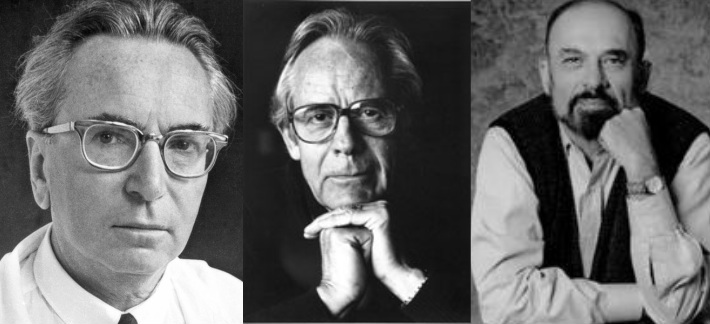Contents
Introduction

Existential Therapy: Techniques, Applications, and Effectiveness
Existential Therapy is a therapeutic approach that emphasizes the exploration of fundamental aspects of human existence. It draws from existential philosophy, which addresses the nature of human freedom, the search for meaning, and the inevitability of death. Existential Therapy encourages clients to examine their own experiences, beliefs, and values to confront and resolve existential dilemmas and find a sense of purpose and authenticity. Unlike other therapeutic approaches that may focus on specific symptoms or disorders, Existential Therapy addresses broader existential concerns and helps clients navigate the complexities of their lives.
This article provides an overview of Existential Therapy, including its core principles, techniques, and applications in treating various mental health conditions. We will also discuss the criticisms and limitations of this approach and its relevance and effectiveness as a therapeutic option today.
What is Existential Therapy?
Existential Therapy is a philosophical and therapeutic approach that emphasises individual freedom, choice, and responsibility. Rooted in existential philosophy and developed by key figures such as Viktor Frankl, Rollo May, and Irvin D. Yalom, Existential Therapy explores the fundamental questions of human existence, including meaning, death, isolation, and freedom. The therapy aims to help clients confront and embrace these existential concerns, fostering a deeper understanding of themselves and their place in the world. By focusing on personal responsibility and the search for meaning, Existential Therapy facilitates profound personal growth and resolution of psychological issues.
Why Existential Therapy is Important?
Existential Therapy is important because it addresses the core aspects of human existence and provides a framework for understanding and resolving deep-seated existential concerns. By helping clients explore issues such as meaning, freedom, and death, Existential Therapy fosters a deeper understanding of oneself and one’s place in the world. It encourages personal responsibility and authenticity, promoting a sense of purpose and fulfilment. This approach can be particularly beneficial for individuals facing existential crises, major life transitions, or seeking to enhance their overall sense of well-being.
Types of Existential Therapy Techniques
- Exploration of Existential Themes: Existential Therapy focuses on exploring fundamental themes such as meaning, freedom, isolation, and death. Clients are encouraged to reflect on these themes and their impact on their lives.
- Meaning-Centred Therapy: This technique involves helping clients find or create meaning in their lives, especially during challenging or uncertain times. It may involve examining personal values, goals, and sources of fulfilment.
- Confrontation of Death and Mortality: Existential Therapy often addresses the awareness of mortality and the implications it has for one’s life and choices. This may involve discussions about the inevitability of death and how it influences one’s actions and sense of purpose.
- Authenticity and Responsibility: Clients are encouraged to examine their sense of authenticity and take responsibility for their choices and actions. This involves exploring how they live in alignment with their values and beliefs.
Understanding How Existential Therapy Works
Existential Therapy works by helping clients confront and explore fundamental questions about their existence. The therapy emphasizes the importance of personal responsibility, choice, and the search for meaning. By addressing existential themes and encouraging self-reflection, clients gain insight into their own values, beliefs, and goals. The therapeutic relationship plays a crucial role in facilitating this exploration, providing a supportive environment for clients to confront existential concerns and develop a deeper understanding of themselves.
Our examination of Existential Therapy will proceed in phases: beginning with an overview of its core concepts, followed by a closer look at its essential therapeutic methods, and concluding with its relevance to various psychological conditions.
Simple Overview
Core Idea: Existential Therapy is based on the belief that confronting fundamental existential concerns, such as the search for meaning, freedom, and mortality, is crucial for personal growth and psychological well-being. The therapy encourages clients to explore their own values and beliefs, helping them find purpose and make authentic choices.
Real-Life Example: Imagine someone feeling overwhelmed by their career choice and questioning their life’s purpose. In Existential Therapy, they might explore their core values and beliefs about life’s meaning, ultimately helping them make more authentic decisions about their career and life direction.
Critical Concepts
Existential Therapy addresses fundamental issues such as meaning, freedom, isolation, and death. It explores how these concerns influence individuals’ lives and mental states.
- Meaning-Centred Approach: : This approach focuses on assisting clients in finding or creating meaning in their lives, particularly during challenging or uncertain times. By exploring personal values, goals, and beliefs, clients are guided to discover or construct a sense of purpose. This process helps individuals navigate through periods of existential doubt and enhances their overall sense of fulfillment and direction.
- Authenticity and ResponsibilityExistential Therapy emphasizes the importance of living authentically and taking responsibility for one’s choices and actions. Clients are encouraged to align their behaviors with their true values and beliefs, making conscious and responsible decisions. This focus on authenticity helps individuals lead more genuine lives and embrace their freedom to shape their own destiny.
- Existential Crisis: This concept involves addressing crises related to the search for meaning or significant life transitions. Existential crises often occur during major life events or periods of profound uncertainty, prompting individuals to question their purpose and existence. Therapy helps clients explore these existential concerns, fostering resilience and aiding them in finding clarity and direction during these pivotal moments.
Detailed Assessment
Existential Therapy incorporates cognitive, emotional, and philosophical elements to provide a comprehensive approach to understanding and addressing existential concerns.
- Cognitive Foundations: Existential Therapy involves examining core beliefs and values related to existential themes such as meaning, freedom, and responsibility. While not primarily cognitive, it encourages clients to reflect on their underlying beliefs and how these impact their perception of existence and choices. This process helps individuals understand how their thoughts about life’s fundamental issues influence their behavior and emotions.
- Experiential and Emotional Processing: The therapy emphasizes exploring and reflecting on existential concerns and personal experiences. Through this process, clients engage deeply with their emotions and experiences to gain greater self-awareness and emotional growth. This approach helps individuals confront and work through existential anxieties and emotional challenges, leading to a richer understanding of themselves and their lives.
- Insight Development: Existential Therapy focuses on developing insights into fundamental aspects of human existence, such as the nature of freedom, responsibility, and the search for meaning. Gaining these insights allows clients to approach life with greater authenticity and purpose. The therapy aims to help individuals integrate these understandings into their daily lives, leading to more meaningful and intentional living.
Difference between Existential Philosophy and Therapy
| Aspect | Existential Philosophy | Existential Therapy |
| Definition | A philosophical approach that explores fundamental questions about existence, meaning, and choice. | A therapeutic approach focused on helping individuals confront and understand existential concerns and find personal meaning. |
| Focus | Theoretical exploration of existence, freedom, responsibility, and meaning. | A therapeutic approach focused on helping individuals confront and understand existential concerns and find personal meaning. |
| Key Figures | Søren Kierkegaard, Friedrich Nietzsche, Jean-Paul Sartre, Martin Heidegger | Viktor Frankl, Rollo May, Irvin D. Yalom |
| Main Concepts | Freedom, responsibility, authenticity, meaning, death, and isolation | Meaning, existential anxiety, responsibility, authenticity, and self-discovery |
| Goal | To understand the nature of human existence and the conditions of freedom and responsibility. | To help clients face and navigate existential concerns, such as meaning, freedom, and isolation, and to live more authentic lives. |
| Application | Philosophical inquiry, literary works, and academic discussions. | Therapeutic techniques to address existential issues in individual counseling. |
| Methods | Conceptual analysis, philosophical argumentation, and existential inquiry. | Techniques like existential questioning, exploring values, and discussing life’s meaning and purpose.. |
| Outcome | Provides insights into the nature of existence and human condition. . | Helps clients achieve greater personal insight, clarity, and fulfillment by addressing existential concerns. |
Notable Figures in Existential Therapy

- Viktor Frankl: Founder of Logotherapy, which focuses on finding meaning in life, particularly in the face of suffering. His work, including “Man’s Search for Meaning,” has significantly influenced Existential Therapy.
- Rollo May: An existential psychologist who emphasised the importance of personal responsibility, freedom, and the search for meaning. His book “Existential Psychology” is a key text in the field.
- Irvin D. Yalom: A prominent existential psychotherapist known for his work on existential psychotherapy and his book “Existential Psychotherapy,” which explores existential themes and their impact on therapy.
- Jean-Paul Sartre: A philosopher whose existentialist ideas about freedom, responsibility, and authenticity have influenced the theoretical foundations of Existential Therapy.
- Martin Heidegger: A philosopher whose existential analysis of being and time has provided a framework for understanding existential concerns in therapy.
Find out more about significant psychologists on our blog.
Applications of Existential Therapy in Treating Mental Health Disorders

Depression
Existential Therapy can be effective in treating depression by helping clients explore and address existential concerns such as meaninglessness and lack of purpose. By confronting these issues, clients can develop a deeper understanding of their lives and find new sources of meaning and fulfilment.
Example: A client experiencing depression might use Existential Therapy to explore feelings of emptiness and disillusionment, ultimately finding new meaning and direction in their life.
Image Source: healthline.com

Anxiety Disorders
Existential Therapy helps individuals with anxiety disorders by addressing the underlying existential concerns that contribute to their anxiety. This may involve exploring fears related to freedom, responsibility, or the meaning of life.
Example: A person with anxiety might use Existential Therapy to confront existential fears and uncertainties, leading to greater self-awareness and reduced anxiety.
Image Source: therapycts.com

Personality Disorders
Existential Therapy can be beneficial for individuals with personality disorders by helping them explore and understand existential themes related to their sense of self and interpersonal relationships. The therapy’s focus on authenticity and responsibility can facilitate personal growth and self-acceptance.
Example: For someone with Narcissistic Personality Disorder, Existential Therapy might focus on exploring issues related to self-worth and the search for meaning, leading to greater self-understanding and improved relationships.
Image Source: kazmobrain.com

Relationship Issues
Existential Therapy is effective in addressing relationship issues by helping clients explore and resolve existential concerns related to their sense of connection, meaning, and authenticity in their relationships.
Example: A couple experiencing relationship difficulties might use Existential Therapy to explore existential themes such as meaning and connection, leading to a deeper understanding and improved relationship dynamics.
Image Source: therapy-unlocked.com
Common Myths About Existential Therapy
| Myth | Reality |
| Existential Therapy is just about philosophical discussions with no practical application. | While Existential Therapy involves philosophical themes, it also provides practical tools and techniques for addressing existential concerns and promoting personal growth. |
| Existential Therapy is only for people with major existential crises. | Existential Therapy can benefit a wide range of individuals, including those seeking to enhance their sense of meaning and authenticity in everyday life. |
| Existential Therapy is too abstract and not evidence-based. | Existential Therapy is grounded in philosophical principles and has empirical support for its effectiveness in addressing various psychological issues and promoting personal growth. |
| Existential Therapy ignores practical concerns and focuses only on abstract concepts. | Although it addresses existential themes, Existential Therapy also incorporates practical approaches to help clients navigate their personal experiences and challenges. |
Criticisms and Limitations
- Abstract Nature: Existential Therapy’s philosophical and abstract nature can be challenging for some clients who may find it difficult to grasp or apply its concepts. The focus on deep, existential themes might not always offer concrete solutions to specific problems, which can be a barrier for those seeking more practical or immediate guidance.
- Lack of Structured Techniques: The therapy’s emphasis on exploring existential themes and personal experiences often means it lacks the structured techniques and step-by-step methods found in other therapeutic approaches. This lack of structure might make it less suitable for clients who prefer a more directive and goal-oriented approach to therapy.
- Empirical Support: Existential Therapy has faced criticism for its comparatively limited empirical support relative to more research-backed approaches like Cognitive Behavioral Therapy (CBT). However, there is an increasing body of evidence suggesting its effectiveness, particularly in helping clients address existential concerns and achieve personal growth.
Conclusion
Existential Therapy offers a profound approach to understanding and addressing fundamental aspects of human existence, including meaning, freedom, and mortality. By focusing on personal responsibility and authenticity, Existential Therapy helps clients navigate existential concerns and achieve a deeper sense of purpose and fulfilment. Despite some criticisms related to its abstract nature and empirical support, Existential Therapy remains a valuable option for individuals seeking to explore existential themes and enhance their overall well-being.
References
- Frankl, V. E. (1959). Man’s search for meaning: An introduction to logotherapy. Beacon Press.
- May, R. (1969). Existential psychology. Norton & Company.
- Yalom, I. D. (1980). Existential psychotherapy. Basic Books.
- Sartre, J.-P. (1943). Being and nothingness: An essay on phenomenological ontology. Gallimard.
- Heidegger, M. (1962). Being and time. Harper & Row.
- Schneider, K. J., & Krug, O. M. (2010). Existential-integrative psychotherapy: Guideposts to the core of practice. Springer.
- Yalom, I. D. (2002). The gift of therapy: An open letter to a new generation of therapists and their patients. HarperCollins.
- Viktor Frankl Institute. (n.d.). Logotherapy and existential analysis. Retrieved from Viktor Frankl Institute
- Greenberg, L. S. (2002). Emotion-focused therapy: Coaching clients to work through their feelings. American Psychological Association.
- Hoffman, L., & D. (2008). The practice of existential psychotherapy. Routledge.
- Gergen, K. J. (2009). Relational theory and the practice of therapy. Springer.
- Corey, G. (2016). Theory and practice of counseling and psychotherapy (9th ed.). Cengage Learning.
Explore more Theories & Therapies








